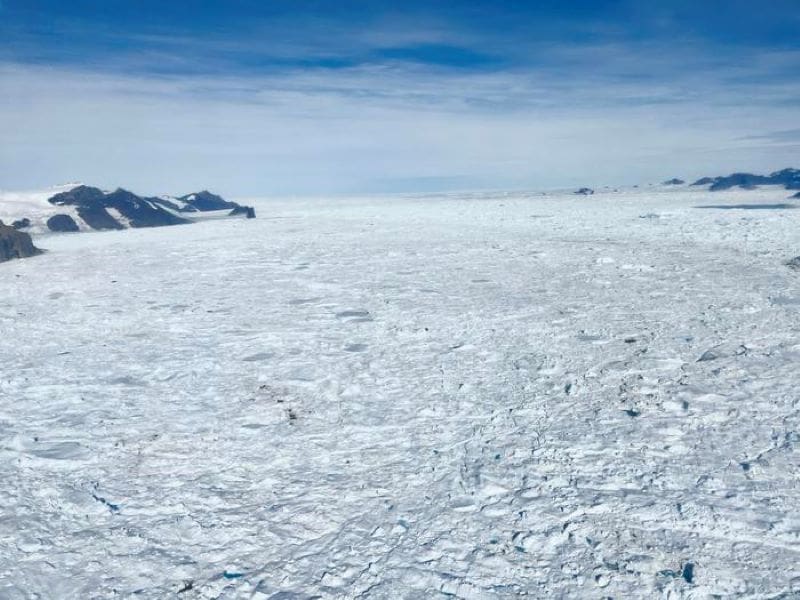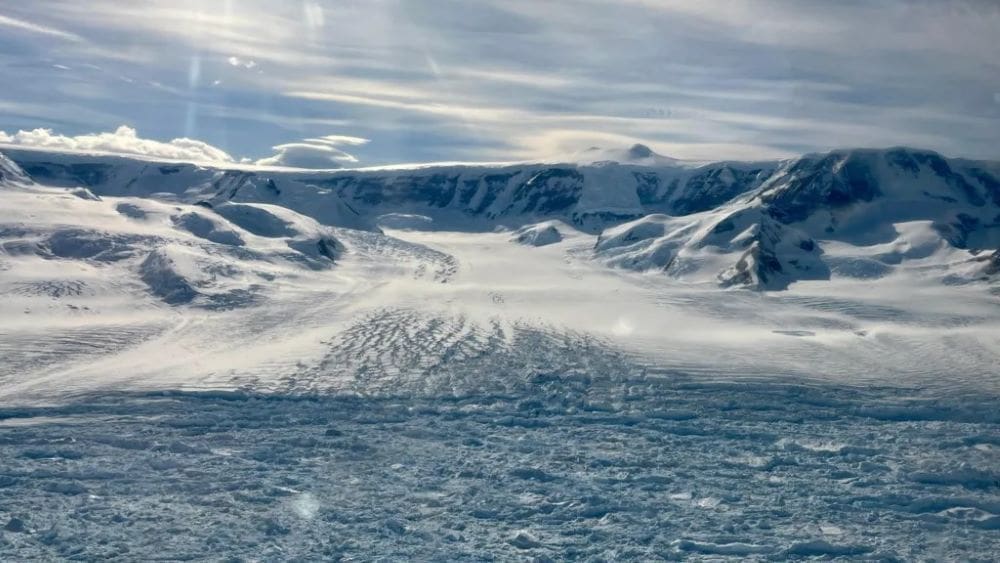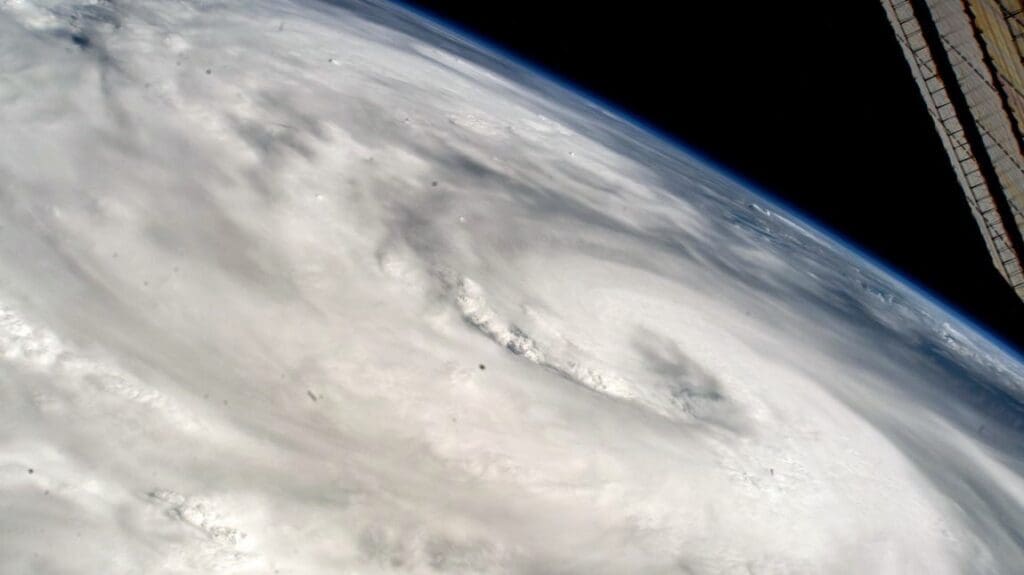Summary:
Hektoria Glacier on the Eastern Antarctic Peninsula has undergone the fastest recorded retreat of any Antarctic glacier in modern times, according to new research published in Nature Geoscience. The study, led by the University of Colorado Boulder (CU Boulder) in collaboration with Swansea University and other international institutions, documents how the glacier lost around 8 kilometres of ice in just two months between late 2022 and early 2023 – nearly half its total length.
Using satellite imagery and seismic data, researchers found that the glacier’s rapid collapse followed the loss of decade-old fast ice in the Larsen B embayment. Once retreat began, the glacier’s flow speed increased nearly sixfold and its thinning rate fortyfold. The team discovered that Hektoria rested on an ice plain – a flat bedrock area below sea level – where ice became only lightly grounded. This geometry triggered a buoyancy-driven calving process, causing large sections to detach rapidly.
Professor Adrian Luckman of Swansea University noted that such extreme retreat “shows what may happen elsewhere in Antarctica, where glaciers are lightly grounded and sea ice loses its grip.” The study suggests that other marine-terminating glaciers with similar bed structures could be especially vulnerable to future collapse, with implications for global sea level rise.

New study reveals fastest Antarctic glacier retreat in modern history
A glacier on the Eastern Antarctic Peninsula has experienced the fastest recorded ice loss in modern history, according to a landmark study co-authored by Swansea University.
The research reveals that Hektoria Glacier lost nearly half its length – eight kilometres of ice – in just two months during 2023; a pace similar to the dramatic retreats seen at the end of the last ice age.
Led by the University of Colorado Boulder (CU Boulder), an international team – including Swansea glaciologist, Professor Adrian Luckman – found that Hektoria’s retreat was boosted by the shape of the land beneath it.
Hektoria Glacier rested on an ice plain – a flat stretch of bedrock below sea level – which, once retreat began, saw large sections of ice break away in quick succession.
The scale and speed of Hektoria’s collapse may now help scientists identify other vulnerable glaciers and prioritise them for close monitoring.
Although Hektoria Glacier is relatively small by Antarctic standards – covering just 115 square miles, slightly smaller than the city of Swansea – its rapid retreat serves as a stark warning. If similar events occur on larger glaciers, there will be consequences for the rate of global sea level rise.
Professor Adrian Luckman, co-author of the study, said: “Glaciers don’t usually retreat this fast. The circumstances may be a little particular, but this scale of ice loss shows what may happen elsewhere in Antarctica, where glaciers are lightly grounded and sea ice loses its grip.
“Although the paleo record indicates some very rapid retreats in the past, the pace of retreat of Hektoria Glacier and its neighbours is unprecedented in the observational record.
“This is the latest chapter in a sequence of events which started with the collapse of the Larsen B Ice Shelf 23 years ago, marking a landscape-changing event that offers insights into the potential future rates of glacier retreat elsewhere in Antarctica.”
Using satellite imagery and seismic data, the team tracked the glacier’s collapse in detail. They identified multiple grounding lines – points where the glacier shifts from resting on bedrock to floating on seawater – revealing the presence of an ice plain and underscoring Hektoria’s vulnerability to ocean-driven retreat.
Seismic instruments also recorded glacier earthquakes – small tremors triggered by sudden ice movement – during the retreat, evidence that the ice was grounded and that its loss directly contributed to global sea level rise.
Dr Ted Scambos, a Senior Research Scientist at CU Boulder’s Earth Science and Observation Center, said: “This kind of lightning-fast retreat really changes what’s possible for other, larger glaciers on the continent. If the same conditions are set up in some of the other areas, it could greatly speed up sea level rise from the continent.”
The study highlights the urgent need for continued monitoring and international collaboration to better understand changes in Earth’s frozen regions.
Journal Reference:
Ochwat, N., Scambos, T., Anderson, R.S. et al., ‘Record grounded glacier retreat caused by an ice plain calving process’, Nature Geoscience (2025). DOI: 10.1038/s41561-025-01802-4
Article Source:
Press Release/Material by Swansea University
Featured image: Hektoria and Green, once glaciated, are now reduced to drifting ice rubble (26 February 2024). Credit: Naomi Ochwat, lead author of the study and Post-Doctoral Associate at CU Boulder’s Cooperative Institute for Research in Environmental Sciences (CIRES) | CC BY




